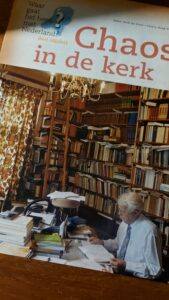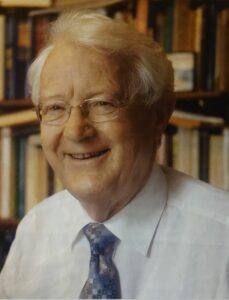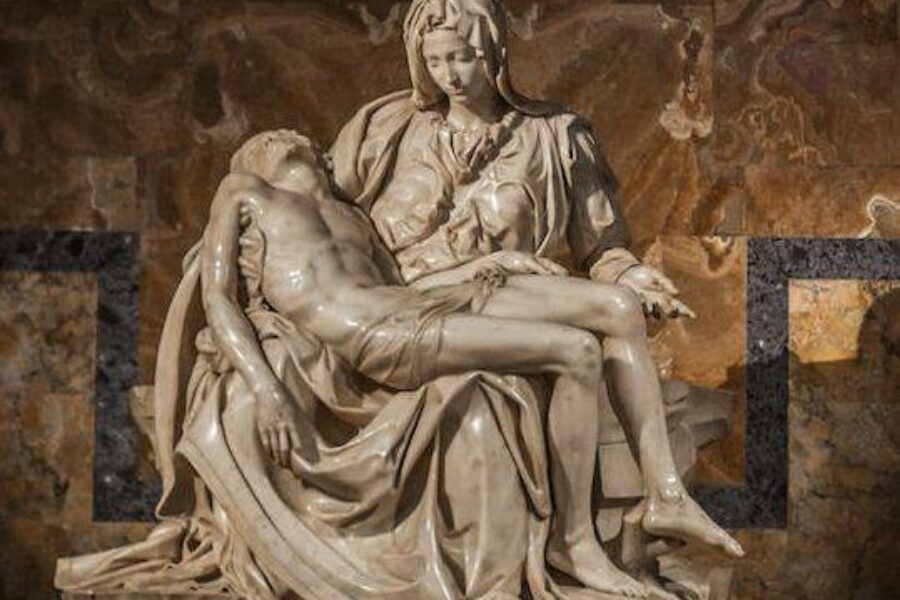His Broken Body
Scholars of the Reformation are well-aware of Calvin’s affection for Philip Melanchthon. Soon after Melanchthon died Calvin wrote “O Philip Melanchthon! I appeal to thee who art living in the presence of God with Christ, and waiting for us there until we are united with thee in beatific rest. Thou hast said a hundred times, when, weary with labour and oppressed with sadness thou didst lay thy head familiarly on my bosom: ‘Would, would that I could die on this bosom!’ Since then, I have wished a thousand times that it had been our lot to be together!” (from Tracts and Treatises on the Doctrine and Worship of the Church by John Calvin, Eerdmans: 1958, p. 496)
Some well-informed contemporary Christians might dare to ask, “Would John Calvin have dared to express that level of affection so freely today as he did five hundred years ago?” You might wonder, and here is why…
The longing for unity in Reformation Era
Calvin could have been in all sorts of trouble today for writing what he did, because Jesus’ body is so badly broken. No, I am not referring to that bruised and bloodied human body that Joseph took so tenderly from the cross two millennia ago. I am speaking of the church, which the New Testament calls Christ’s own body. It is because this body of Christ is so badly broken today—far worse than in April 1560—that Calvin might have been hesitant to express those sentiments in the twenty-first century. Back then Christianity was basically divided into three camps: Eastern Orthodox, Roman Catholic, and Protestant, with the latter consisting of Calvinists, Lutherans, Anglicans and Anabaptists. But then Protestantism began to pulverize, and it never seemed to end.
So why might Calvin have been reticent to express those sentiments today? Not so much because of what an LGBTQ+ crowd could have done with it, but because of what many of his own supposed followers (Calvinists) might think of it, for remember Melanchthon was a Lutheran, and, what’s more, not a “five-point Calvinist.” Melanchthon, it seems to me, would not have subscribed to TULIP, and maybe Calvin was pretty well aware that.
But Calvin had a very big heart, being so profoundly grounded in the apostolic testimony and so much in love with our Lord’s prayer for Christian unity in John 17. In fact, he yearned so much for evangelical unity, that he once said he would swim through seven seas for the sake of it. He even tried to organize a conference between Calvinists, Lutherans and Anglicans late in his life to achieve such unity. The young Calvin’s mentor, Martin Bucer of Strasbourg, travelled many thousands of miles on horseback, up and down the muddy and treacherous German roads, to achieve unity between the supporters of Luther on the one hand, and those of Zwingli on the other, for they were fighting bitterly about “Christ’s presence in the Eucharist.” In fact, Bucer even reached out to evangelical Catholics and moderate Anabaptists, before the Council of Trent and the Munster Debacle dug trenches between the camps impossible to cross. Martin Bucer died in Cambridge, England, pretty much with a broken heart in 1551, having watched all his hopes for unity disappear into thin air (see Martin Bucer – A Reformer and His Times by Martin Greschat, WJK: 2004).
We unite or we perish!
I remember once reading the sobering words of an influential contemporary Dutch Reformed church historian in a Christian daily. He said, “We unite, or we go under,” (i.e., sink like the Titanic!) This seasoned and well-loved theologian,
 Dr. Willem Van’t Spijker, speaking for his own Dutch Reformed world, said elsewhere that most church schisms in history in his opinion were due to conflicts between stubborn characters, or because different groups of Christians pushed their special emphases in the life of the church so hard, often in following their favourite theologians, that everything came loose by the seams. In Dutch Reformed history these “emphases” could have been about anything from “the covenant,” or “election,” or “experiential religion,” or “the cultural mandate,” to “hymns in worship,” or “the days of creation” or “divorce and remarriage,” etc. But then, even within the debate on “the covenant” for instance, different viewpoints developed over time, leading to endless dialogues and a situation where brothers could later no longer see eye-to eye. A book appeared in 1946 at the famous JH Kok in Kampen entitled A Century of Strife About Covenant and Baptism. Striking about these debates and conflicts is that the Bible itself played at best a secondary, if not a tertiary role, behind the opinions of theologians and the quotations from Confessional documents. The Bible is mostly referenced in eclectic fashion, in disregard of both its context or genre. All of these endless debates created a whole spectrum of groups within the Calvinist camp, each fighting for its own piece of the ecclesiastical real-estate, often leaving the simple Bible-believing folk behind baffled and discouraged. Van’t Spijker continued, “if you create separate compartments of piety (within the church), you run the risk of losing your piety altogether. It should be our desire to cultivate a catholic piety (Dutch = katholieke vroomheid)… for that will lead to a healthy church life” (see “Chaos in de Kerk”, Terdege, 23 Augustus 2006).
Dr. Willem Van’t Spijker, speaking for his own Dutch Reformed world, said elsewhere that most church schisms in history in his opinion were due to conflicts between stubborn characters, or because different groups of Christians pushed their special emphases in the life of the church so hard, often in following their favourite theologians, that everything came loose by the seams. In Dutch Reformed history these “emphases” could have been about anything from “the covenant,” or “election,” or “experiential religion,” or “the cultural mandate,” to “hymns in worship,” or “the days of creation” or “divorce and remarriage,” etc. But then, even within the debate on “the covenant” for instance, different viewpoints developed over time, leading to endless dialogues and a situation where brothers could later no longer see eye-to eye. A book appeared in 1946 at the famous JH Kok in Kampen entitled A Century of Strife About Covenant and Baptism. Striking about these debates and conflicts is that the Bible itself played at best a secondary, if not a tertiary role, behind the opinions of theologians and the quotations from Confessional documents. The Bible is mostly referenced in eclectic fashion, in disregard of both its context or genre. All of these endless debates created a whole spectrum of groups within the Calvinist camp, each fighting for its own piece of the ecclesiastical real-estate, often leaving the simple Bible-believing folk behind baffled and discouraged. Van’t Spijker continued, “if you create separate compartments of piety (within the church), you run the risk of losing your piety altogether. It should be our desire to cultivate a catholic piety (Dutch = katholieke vroomheid)… for that will lead to a healthy church life” (see “Chaos in de Kerk”, Terdege, 23 Augustus 2006).
Wherein then should true Christian unity and piety consist? In my opinion in our passionate adherence to the Creeds of Christendom and to Five Solas of the Reformation. For, could anyone be a true follower of Christ without believing the Twelve Articles; i.e., in the Father and the Son and the Holy Spirit, three eternally divine persons, but one blessed God, to be praised forever? Could anyone be a true Christian
 who denies that God created everything out of nothing in the beginning, through his Word and Spirit; that our Saviour was born of the blessed Virgin; that he suffered for our sins and died on the cross; and that he bodily rose from the dead on the third day? Could anyone claim to share in his anointing while denying our daily need for the Holy Spirit and that Jesus is now seated at God’s right hand for his people? Or, for that matter, that the Father is ever willing to freely forgive us our sins if we repent and trust in His Son, and to grant us the gift of the Holy Spirit, so that we may worship him in unity and love, taking the gospel into all the world?
who denies that God created everything out of nothing in the beginning, through his Word and Spirit; that our Saviour was born of the blessed Virgin; that he suffered for our sins and died on the cross; and that he bodily rose from the dead on the third day? Could anyone claim to share in his anointing while denying our daily need for the Holy Spirit and that Jesus is now seated at God’s right hand for his people? Or, for that matter, that the Father is ever willing to freely forgive us our sins if we repent and trust in His Son, and to grant us the gift of the Holy Spirit, so that we may worship him in unity and love, taking the gospel into all the world?
Could a church for that matter claim to be preaching the truth if it does not consider the inspired testimony of the apostles and the prophets as the only Divine rule for faith and life? Could anyone claim to know the Lord if he can’t sing “Amazing Grace” from the bottom of his heart, knowing that only Divine grace can save (and then preserve) miserable wretched like us? Could someone be a true brother who denies that no other name has been given under heaven through which we must be saved? Could you be a sister in the Lord without seeking to live your live for God’s glory and honour, and no longer for yourself, willing even to suffer for Jesus’ name? Of course not, these are the clear contours of our undoubted Christian faith, or the boundaries of the one, holy, catholic and apostolic church. It is the faith that was once delivered to the saints. Everything beyond it we call heresy, a word too seldom used among Christians today.
Of course, you can’t be a true believer if you place your trust in saints for salvation, never mind how holy they may have been. But is that really what all Orthodox and Catholic believers do? And yes, you can’t claim to be one of his disciples if you worship images or icons, instead of our exalted Lord? But again, is that really what all Catholics or Orthodox people claim to do? Of course, you are still a stranger to grace if you think it was your own “free will” that caused your name to be written in the Book of Life, but is that really what Arminians historically thought? Neither will you enter God’s Kingdom if you deceive the faithful with bogus claims of signs and miracles, or deceive them out of their hard-earned money with a so-called prosperity-gospel, but is that really what all Pentecostals do? Nor will anyone be saved trusting in his own works, but is that really what “believer’s baptism” implies? And for sure, you definitely deny the blessed Evangel if you think other religions are alternative pathways to salvation. Neither can you be a child of God if you deny that God created us “male and female” in the beginning; or that you can continue in your favourite sin, so that grace may abound. You are for sure not heading in a good way if you deny the return of our Saviour, the resurrection of the body, the judgement to come, the punishment of the wicked, or the promise of a glorious new creation. In fact, it is only those who were made heartily willing to listen to the voice of the living God speaking through Scripture, whose little boats will also safely dock at their desired haven on the other side.
Let us appreciate once again what St. John wrote long ago, that our Lord Jesus died “to bring all God’s people together and (to) make them one” (John 12:52). And may we realize again that “anyone who believes in him, will never be put to shame” (Rom. 10:11) and that this good promise applies to all God’s children around the world. May we consider how much the Holy Spirit yearns to fill us with that power that does not avoid, or ignore or slander each other, but rather to engage each other in sincere brotherly love when we encounter a difference or a disagreement. For love, says the apostle, always protects, always trusts, always hopes and always perseveres. The only thing that really counts before the face of God at the end of the day is “faith working through love” (Gal. 5:6). So let us think, and hope and believe the best of each other, until it is abundantly clear that we don’t serve the same Lord or live by the same rule. Let us finally throw that terrible “whip of consequences” away—i.e., our relentless quest to prove our point at all cost—and rather learn to live from “every word that comes from the mouth of God.” Yes, and finally, let us agree with Calvin that “the Lord requires us to love our brothers with a marvellous affection which burns intensely like a flame” to the glory of the Father and the Son and the Holy Spirit! (See Calvin’s Brief Outline of the Christian Faith of 1536, translated by Stuart Ollyot).
To be continued…








